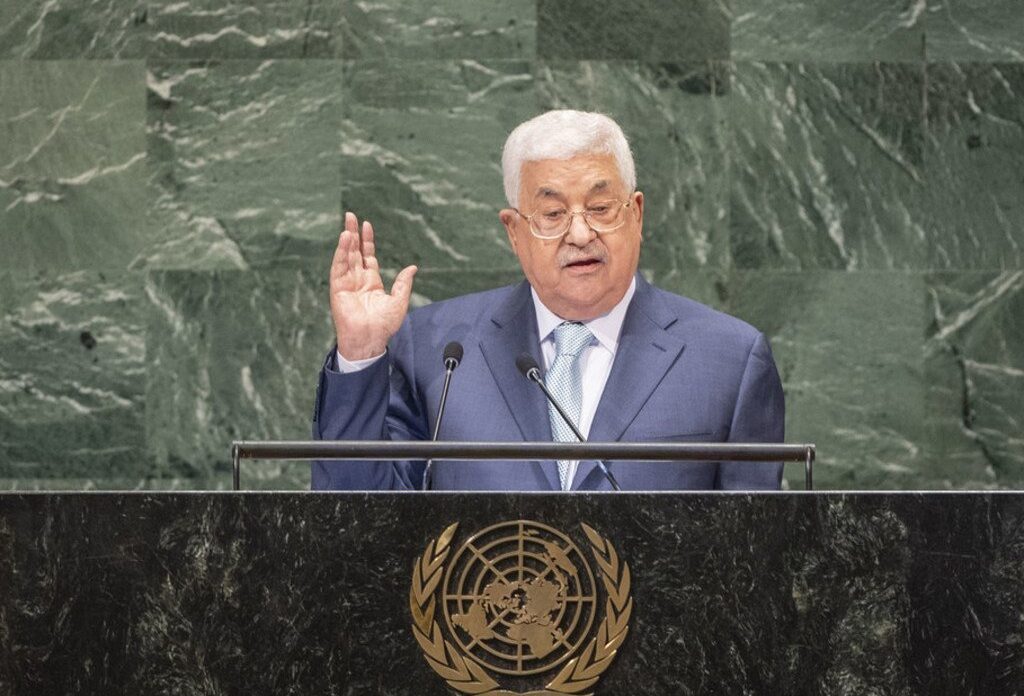IN THE MEDIA
Palestinian recognition without reform is a dangerous illusion
September 26, 2025 | Colin Rubenstein

The Australian – 26 September 2025
But recognition in the absence of reform is not a path to peace. It is a profound misstep that rewards terrorism, undermines genuine diplomacy and helps entrench Palestinian rejectionism.
As a powerful rebukes from President Donald Trump, Secretary of State Marco Rubio and a letter to leaders of Australia, France, Canada and the UK from 25 Congressmen in recent days have underlined, recognition now would be a reckless and counter-productive decision. It rewards Hamas terrorism, delays any possible ceasefire and release of the hostages, and retards necessary Palestinian deradicalisation and reform which diminishes chances of a possible future negotiated process towards mutual reconciliation.
It also risks enabling even more anti-Semitism both here and elsewhere, and potentially further weakens our crucial Australian national security interest in maintaining strong, trusted ties with our principal ally the United States!
Recognition of Palestine was predicated on promises made by Palestinian Authority President Mahmoud Abbas. But the PA has made – and broken – the same promises for decades. These include holding elections, disarming militias, ending stipends for convicted terrorists, and reforming school curriculums and media content to prepare Palestinians for coexistence with Israel.
AIJAC has just released a report that looks at what Palestinians think about the promises made by Abbas, based on examining 11 years of Palestinian opinion polls.
These show what Abbas is promising is deeply unpopular among Palestinians – as are both Abbas himself, and the Palestinian Authority. The idea that a government without popular legitimacy could implement unpopular reforms in a society that often applauds violence and is awash with armed groups makes no sense. Yet this is the Australian government’s position.
Each of Abbas’ commitments is essential to creating a viable state and laying the groundwork for peace. Yet not one has ever been implemented in a sustained or meaningful way. Elections have not been held since 2006. Meanwhile, polling shows that nearly two-thirds of Palestinians believe any election held now would not be free and fair. Worse, a clear majority think Hamas is more deserving of representing Palestinians than Abbas’ Western-backed Fatah.
Another recurring pledge has been to bring all weapons under central control. In practice, armed groups continue to operate freely, even in the West Bank, and two-thirds of Palestinians oppose disarming them.
Then there is the notorious “pay-for-slay” program, under which the PA provides stipends to convicted terrorists and the families of those killed while attacking Israelis. International donors have pressed for years to end these payments, and Abbas has repeatedly promised change. But the stipends were paid in August, and polling suggests strong majority support among Palestinians for continuing them.
Abbas has promised to reform education and official media to promote peace and coexistence. Instead, incitement remains rife in textbooks and broadcasts. The impact is visible in Palestinian attitudes: surveys show not only that a majority think that violence is preferable to negotiations, but most Palestinians don’t even want a state if it’s alongside Israel; they want a state instead of Israel! Those decades of hate messaging have been tragically successful.
Abbas also promised a Palestinian state would be demilitarised. Yet polling shows only one in five Palestinians supports that condition.
Australia has demanded Abbas institute major PA governance reform. Here’s the one example where Australia is on-side with the Palestinian street. Around 80 per cent of Palestinians say the PA is corrupt. And it’s not just corruption; it’s tyranny. Most Palestinians are fearful of criticising their government.
However, Abbas has promised governance reform many times in the past, and no significant improvement has ever occurred. Why would this time be any different?
Recognition now effectively rewards the Palestinians’ record of failure. It sends the dangerous signal that promises are sufficient, and delivery unnecessary.
This is the central paradox Foreign Minister Penny Wong and other countries refuse to acknowledge. By providing recognition based solely on Abbas’ promises, they have tied themselves to an agenda that Palestinians overwhelmingly reject, and which he has a demonstrated inability to implement.
Proponents of recognition argue it gives momentum to diplomacy. In reality, it squanders one of the few levers of influence the international community had left. Conditional recognition – offered only after demonstrable reform was achieved – could have incentivised genuine change. Instead, Australia and others have given away the prize at the start of the race.
If, against all odds, Senator Wong and her peers somehow did succeed in forcing the PA to honour its commitments, the outcome could be transformative. A reformed, accountable, non-corrupt, demilitarised Palestinian leadership preparing its people for peace would pave the way for the realisation of a two-state outcome. And in that scenario, recognition could have real meaning.
But history – and Palestinian polling – tells us it will not happen. Instead, recognition will embolden extremists who argue that rejectionism pays. Hamas claims vindication. The PA will continue to pocket international support while failing its own people. And ordinary Palestinians are no closer to actual statehood.
By basing recognition on what will inevitably be broken promises of reform, the Australian government is undermining the very outcome it claims to be seeking.






Australia’s decision to join several Western states in recognising Palestine at the United Nations is being framed as a principled step toward peace.